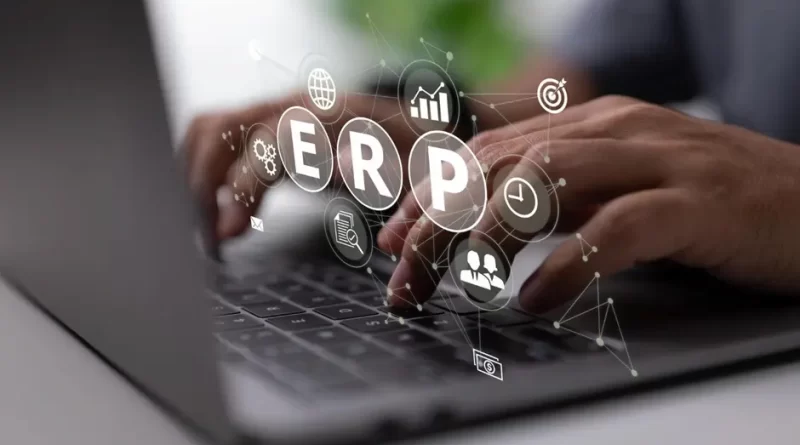Cloud & on-premise solutions: choosing the ideal ERP system for your business
ERP (Enterprise Resource Planning) systems are the cornerstone of modern business, integrating key processes and providing valuable data for decision-making. The choice between cloud and on-premise solutions depends on a variety of factors. We’ve teamed up with experts from Light-IT to delve into details of this issue.
Overview of cloud ERP systems
Cloud ERP systems have revolutionized business process management, offering flexibility, cost savings, and simplified IT infrastructure. They rely on cloud-based services, providing easy access to real-time data from any device with an internet connection.
Key advantages of ERP systems include 1) a low initial cost, as there is no need for large investments in hardware and software, and 2) the ability to scale resources according to business needs. However, there are concerns about data security and confidentiality, which require careful selection of a reliable cloud ERP provider.
Overview of on-premise ERP systems
On-premise ERP systems are integrated software solutions installed directly on a company’s corporate equipment. They provide comprehensive management of various aspects of business, such as production, logistics, finance, and HR.
Their main advantages include 1) control and security, because they provide full control over data and processes and minimize risks associated with storing data outside the company; and 2) customization, as they offer better customization and integration with other internal systems, adapting to the company’s unique business processes.
Among the disadvantages, experts highlight high initial costs of acquisition and implementation, as well as the costs of ongoing maintenance and software updates. Additionally, managing and supporting the system requires a qualified IT team.
On-premise ERP systems are best suited for large organizations requiring a high level of integration, customization, and control over their IT resources, as well as for companies operating in industries with high data security requirements.
How to choose between cloud and on-premise ERP systems
Choosing between cloud-based and on-premise ERP systems is a key decision for businesses, impacting operational efficiency and flexibility. Therefore, it is important to consider several factors, according to experts.
- Financial considerations: a cloud-based ERP system requires less initial investment, while on-premise systems incur higher costs of installation and support.
- Technical aspects: an on-premise ERP system requires its own infrastructure, providing full control, while cloud systems are managed by the service provider.
- Security and compliance: On-premise systems offer stricter control, while cloud systems should be carefully assessed regarding their compliance with regulations.
- Scalability and flexibility: Cloud systems are better suited for scaling and adapting to changes in the business context.
- Dependency on the provider and the internet: Cloud ERP systems depend on the stability of the internet connection and the reliability of the provider.
Examples of successful ERP system integrations
Retail. One of the largest retail chains successfully implemented a cloud ERP system, centralizing sales data and inventory management in real time, optimizing the supply chain, and improving customer service.
Manufacturing. A manufacturing company switched to a cloud ERP system to integrate production processes, accounting, and order management, resulting in smoother coordination between departments and reduced operating costs.
Examples of on-premise ERP systems
Financial sector. A bank, aiming to maintain a high level of control and security, chose an on-premise ERP solution to manage its financial operations and customer database, ensuring strict security measures and compliance with regulatory requirements.
Educational institutions. A university implemented an on-premise ERP system to manage student records, finances, and personnel, better coordinate academic and administrative processes, and provide a high degree of customization and control.
What Light-IT offers
By contacting Light-IT, you will be able to assess the advantages of erp and choose the best option to optimize processes and increase efficiency. These advantages include:
- Business process integration: ERP systems integrate all aspects of the enterprise, including planning, procurement, inventory management, sales, marketing, finance, and personnel management, leading to increased efficiency and effectiveness.
- Increased data accuracy and decision quality: with centralized data storage, ERP systems ensure that all business decisions are based on current and accurate information, reducing errors and improving decision-making processes.
- Increased efficiency: by automating routine tasks and optimizing business processes, ERP systems reduce manual labor and free up resources, allowing employees to focus on more strategic tasks.
- Improved reporting and planning: ERP systems provide comprehensive reporting and analytics tools, allowing companies to easily create detailed reports. This contributes to better planning and forecasting.
- Cost reduction: ERP systems help reduce operational and administrative costs by simplifying processes and organizing resources better, resulting in financial savings.
It is not a simple task to choose between cloud-based and on-premise ERP systems. It all depends on specific needs, resources, and strategic goals of the business. It is important to conduct a thorough analysis of functionality, security, integration, and cost requirements to determine the most suitable solution. However, you can be sure: If you aim to integrate these benefits into your business, Light-IT will be happy to support you in this task.

